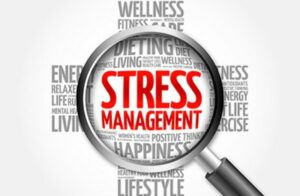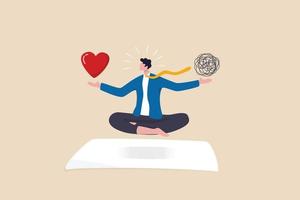Feeling stressed out? You’re not alone. In today’s world, it seems like everyone is always under pressure. Whether it’s work, family, or social obligations, there are a million things to keep us busy. And when we’re constantly under stress, it can be hard to focus on anything else. If you’ve been feeling overwhelmed and stressed out lately, it might be time to consider stress counselling. In this blog post, we’ll discuss what stress counselling is and how it can help you get your life back on track!
Contents
- 1 Defining Stress
- 2 Recognizing Signs Of Stress
- 3 Defining Stress Counselling
- 4 Identifying The Need For Stress Counselling
- 5 Stress Counselling Techniques
- 5.1 Mindfulness
- 5.2 Breathing Exercises
- 5.3 Meditation
- 5.4 Yoga
- 5.5 Progressive Muscle Relaxation
- 5.6 Time Management Skills
- 5.7 Affirmations
- 5.8 Cognitive Restructuring
- 5.9 Problem Solving
- 5.10 Boundary Formation
- 5.11 Sleep Hygiene
- 5.12 Nutritional wellness
- 5.13 Exercise
- 5.14 Biofeedback
- 5.15 Self Care
- 5.16 Therapy
- 5.17 Stress Management Plan
- 5.18 Support System
- 6 Benefits Of Stress Counselling
- 7 Finding A Counselor For Stress
- 8 Things To Consider
- 9 Conclusion
Defining Stress
Stress is defined as a “physical, mental, or emotional response to a demand.” When we experience stress, our bodies release hormones like adrenaline and cortisol. These hormones are designed to help us cope with difficult situations. However, when they’re constantly being released, they can take a toll on our health. Chronic stress has been linked to a variety of health problems, including heart disease, anxiety, depression, and insomnia.
It is important to note that stress is not always bad. In fact, a certain amount of stress can be beneficial. For example, stress can help us stay alert and motivated. However, when stress becomes chronic and interferes with our daily lives, it’s time to seek help.
Recognizing Signs Of Stress

Common signs of stress can be physical, emotional as well as behavioral. It manifests as different expressions for different people. However, some of the most recurrent symptoms of stress include:
Physical Signs
- Headaches
- Stomach problems
- Muscle tension
- Body aches
- Chest pain
- Fatigue
- Excessive sweating
Mental Signs
- Anxiety
- Restlessness
- Anger
- Depression
- Lack of motivation or focus
- Overwhelm
- Irritability or anger
- Panic attacks
Behavioral Signs
- Overeating or undereating
- Social isolation
- Anger outbursts
- Sleeping too much or too little
- “Escape” behaviors such as substance abuse, gambling, or excessive shopping
- Procrastination or neglecting responsibilities
Different people may experience different symptoms of stress. However, if you are experiencing any of the above symptoms on a regular basis, it may be time to seek help from a counselor or therapist.
Defining Stress Counselling
Stress counselling is a type of therapy that can help you manage your stress levels. In counselling, you will work with a therapist to identify the sources of your stress and develop coping mechanisms. Counselling can also help you learn how to manage your time and set boundaries. If you’re struggling to cope with stress, counselling can be an extremely helpful tool.
During stress counselling, you will meet with a therapist on a regular basis. Together, you will discuss the things that are causing you stress. You will also work on developing coping mechanisms. This may involve learning relaxation techniques, developing a support system, or setting boundaries. Stress counselling can be short-term or long-term, depending on your needs.
Identifying The Need For Stress Counselling
Now that we know what stress counselling does, we will now understand the need for it. There are several key indicators that suggest the need to see a counselor for stress management. If you are experiencing any of the following, counselling may be right for you:
- You are struggling to cope with everyday stressors
- Your stress is impacting your work or school performance
- You are using unhealthy coping mechanisms, such as substance abuse
- Your relationships are suffering because of stress
- You’re struggling to manage your time
- You are experiencing chronic physical symptoms due to stress
- You’re feeling hopeless or helpless
If you can relate to any of the above, it may be time to seek out counselling. Stress can have a major impact on our lives. If left unchecked, it can lead to health problems, relationship problems, and difficulty functioning in day-to-day life. However, with counselling, you can learn how to manage your stress and get your life back on track!
Stress Counselling Techniques

During counselling, you will learn a variety of techniques that can help you cope with stress. Some common techniques include:
Mindfulness
This involves being present at the moment and focusing on your breath. It contributes to stress reduction by helping you to be mindful of your thoughts and emotions. It also helps you to be more aware of your surroundings.
Breathing Exercises
Deep breathing is one of the most simple and effective relaxation techniques. It can be done anywhere, at any time. When you are feeling stressed, take a few deep breaths and focus on your breath. Breathe in through your nose and out through your mouth. Slowly count to four as you inhale, and then count to four as you exhale. Repeat this process for a few minutes until you feel more relaxed.
Meditation
Meditation is another great way to reduce stress. It involves focusing your attention on a certain object or idea and letting other thoughts pass through your mind without getting attached to them. Meditation can help you learn how to control your thoughts and focus your attention. There are many different meditation techniques, so it’s important to find one that works for you.
Yoga
Yoga is a great way to reduce stress and improve your overall health. Yoga involves physical postures, breathing exercises, and meditation. It can help you learn how to control your thoughts and focus on the present moment. Yoga is also a great way to get some exercise and release tension from your body.
Progressive Muscle Relaxation
Progressive muscle relaxation is a technique that can help you reduce stress by tensing and relaxing different muscle groups in your body. This helps to release tension and improve blood flow. It works by first tensing a muscle group for a few seconds and then releasing the tension. You can start with your feet and work your way up to your head.
Time Management Skills
Another helpful skill that you will learn in counselling is time management. Time management skills can help you make the most of your time and reduce stress. You will learn how to set boundaries, prioritize your time, and say “no” when needed.
Affirmations
Affirmations are positive statements that you can say to yourself when you are feeling stressed. For example, you might say “I am capable of handling this” or “I am worthy of love and respect.” Affirmations can help you change your thinking and improve your mood.
Cognitive Restructuring
Cognitive restructuring is a technique that can help you change the way you think about stress. This involves identifying and challenging negative thoughts. For example, if you are feeling overwhelmed by a project, you may be able to reframe it as an opportunity to learn new skills.
Problem Solving
Problem-solving skills can help you identify and solve problems that are causing stress. You will learn how to break down a problem into smaller pieces, brainstorm solutions, and make a plan of action. They further reduce stress by teaching you how to prevent problems from occurring in the future.
Boundary Formation
Boundary formation is setting limits on what you are willing to do and how much you are willing to give. This may involve saying “no” more often, setting boundaries with your time, or setting physical boundaries. Boundaries can help you protect your energy and further reduce stress.
Sleep Hygiene
Sleep hygiene is a set of habits that can help you get better sleep. This may include avoiding caffeine before bed, setting a regular sleep schedule, and creating a relaxing bedtime routine. Sleep hygiene can help you reduce stress and improve your overall health.
Nutritional wellness
Nutritional wellness is another important aspect of stress management. Eating a healthy diet can help you reduce stress and improve your overall health. A nutritious diet includes plenty of fruits, vegetables, whole grains, and lean protein. It’s also important to limit processed foods, sugary drinks, and alcohol.
Exercise
Regular exercise is an important part of stress management. Exercise can help you reduce stress by releasing endorphins, which are chemicals that boost mood. Exercise can also help you sleep better and improve your overall health. A minimum of 30 minutes of moderate exercise is recommended for stress management. One can indulge in various kinds of physical activities like running, jogging, swimming, etc.
Biofeedback
Biofeedback is a technique that uses sensors to measure your body’s response to stress. This information is then used to help you learn how to control your body’s response to stress. Biofeedback can help you reduce stress and improve your overall health.
Self Care
Self-care is anything that you do to take care of yourself. This may include exercise, relaxation, healthy eating, and getting enough sleep. Self-care is important for reducing stress and taking care of your overall health. It can also help you feel better about yourself and improve your mood. Some other activities that enhance the feeling of self-care include: listening to music, reading, spending time in nature, and
- reading
- journaling
- volunteering
- taking a bath
- listening to music
- spending time in nature
- taking a break from electronics
Therapy
Therapy is the process of talking to a therapist about your thoughts, feelings, and experiences. It can help you learn more about yourself and also make changes in your life. It can also help you reduce stress, manage anxiety, and improve your overall mental health.
There are various kinds of therapy approaches that can help you reduce stress. These include:
- Cognitive-behavioral therapy (CBT)
- Acceptance and Commitment Therapy (ACT)
- Mindfulness-Based Cognitive Therapy (MBCT)
- Interpersonal therapy
- Psychodynamic therapy
- Solution-focused therapy
- Group Therapy
- Supportive Therapy
- Expressive Arts Therapy
- Animal Assisted Therapy
- Positive Psychology
No matter what approach you choose, counselling can help you learn how to manage stress and further get your life back on track.
Stress Management Plan
One of the most important things you will learn in counselling is how to create a stress management plan. This plan will be individualized for you and will include all of the techniques that you have learned. Having a plan can help you feel more prepared to manage stress when it arises.
Support System
A support system is a group of people who can offer you emotional support. This may include friends, family, or a therapist. Having a support system can help you feel connected and less alone. They can also offer practical assistance when needed.
Above are some of the stress management techniques that can help you get your life back on track. If you are struggling with stress, please reach out for help. There is no shame in seeking counselling to help you manage your stress. You deserve to live a happy and healthy life.
Benefits Of Stress Counselling

Stress counselling can offer you a number of benefits. These benefits may include positive changes such as:
- Reducing the risk of developing chronic diseases such as heart disease, stroke, cancer, and diabetes
- Decrease in the severity of mental disorders like anxiety and depression
- Improved sleep
- Building a strong sense of self
- Boosting self-confidence
- Reducing the risk of burnout
- Learning how to identify and manage stressors
- Improving communication skills
- Learning how to relax as well as cope with stress in healthy ways
- Improving your overall mental health
- Increasing resilience to stress
- Improving physical health
- Increased ability to manage stress
- Enhancing patience
- Improvement in work/academic performance
- Nurturing a positive outlook toward life
All of these benefits can help you get your life back on track. If you are struggling with stress, please reach out for help. Counselling offers a variety of tools and tricks you need to identify and manage stressors.
Finding A Counselor For Stress
Now that we are aware of stress counselling and its processes, it is now important to talk about how to find a counselor. There are many ways to find a counselor. You can ask your doctor for a referral, look online, or ask for recommendations from friends or family.

Once you have sourced your potential counselors, it is important to get to know them before starting the counselling process. You can request to schedule an introductory call with a counselor beforehand. While talking, it is important to consider the following criteria:
- What are their educational credentials?
- Do they have any additional certifications/training?
- Are they licensed and accredited?
- Do they have experience working with people who have stress?
- What approaches do they use?
- What is their price per session? Do they offer a sliding scale or insurance coverage?
- Are their services available online or in-office?
- Do they have a good understanding of the stress management techniques that we discussed earlier?
- What is their success rate?
- Do you feel comfortable talking to them?
It is important to find a counselor that you feel comfortable with as this will make the counselling process more effective. If you do not feel comfortable with your counselor, you can always look for someone else. There is no shame in finding a counselor that is a better fit for you.
Things To Consider
If you are deciding to undergo stress counselling, there are some tips and things you should keep in mind before approaching a counselor:
- Research: As we discussed earlier, it is important to do your research when finding a counselor. This includes looking at their experience, credentials, and reviews.
- Approach: When talking to potential counselors, be sure to ask about their approaches and if they have worked with people who have stress before.
- Cost: another thing to consider is the cost of counselling. Some counselors may offer a sliding scale or insurance coverage.
- Location: you will also want to consider the location of the counselor. If you live in a rural area, it may be difficult to find an in-person counselor. In this case, you can look for online counselling services.
- Commitment: Counselling takes time and commitment. Be sure that you are ready to commit to the counselling process before starting. It is also important to stay transparent and honest with your therapist about your feelings.
- Willingness: In order for counselling to be effective, you must be willing to change. Be open to trying new things and also making changes in your life. Remember that more than half of the change happens outside the counselling room.
Conclusion
In conclusion, stress counseling can help you get your life back on track. It is important to do your research when finding a counselor and to be open to change. If you are struggling with stress, please reach out for help. There is no shame in seeking counselling to help you manage your stress. You deserve to live a happy and healthy life.
If you have any queries regarding Online Stress Counseling experienced therapists at MantraCare can help: Book a trial Stress therapy session


